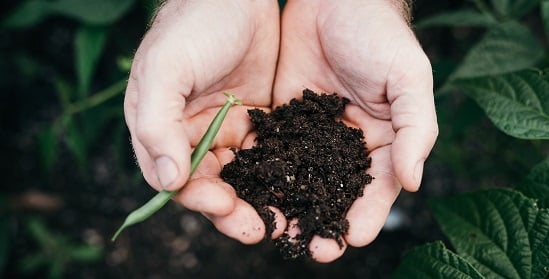Deakin trial diverts tonnes of food waste from landfill
Media releaseHundreds of tonnes of greenhouse gas-producing food waste could be saved from landfill each year thanks to an innovative new environmental system at Deakin University.
A successful three month trial has shown the system has the potential to reduce waste by approximately 12 tonnes a year from one of the University's corporate hospitality centres at the Waurn Ponds Estate.
Deakin Organisational Sustainability Manager Emma Connan said the Estate previously generated more than 24 tonnes of total waste per year - or 460kg per week - but the Closed Loop CLO-30 system enabled diversion of more than 245kg of weekly waste away from landfill by converting it into high-quality fertiliser.
Ms Connan said Deakin would now review whether the system could be implemented across the organisation's four campuses and 19 food sites, possibly kicking off with a precinct-scale trial at Deakin University's Melbourne Burwood Campus.
The move could potentially save hundreds of tonnes of food waste from ending up in landfill each year.
Ms Connan said Deakin was committed to being a leader in sustainability and environmental responsibility among the communities it serves.
"As Deakin University prepares and educates the next generation, we also have a responsibility to ensure that we’re doing everything we can to mitigate our impact on the environment for those future generations," she said.
"Reducing waste and improving sustainability is such a hot topic at the moment, and food waste can play a big role in that."
The successful trial program has led to Deakin University being shortlisted as a finalist in the 2017 Green Gown Awards Australasia, which is being held by Australasian Campuses Towards Sustainability on 2 November.
The Closed Loop CLO-30 system works through pouring food waste into the machine, which then uses controlled temperatures, agitation, airflow and organic starter material to decompose and pasteurise the food and organic waste into dry compost over 24 hours.
The output of the technology is a nitrogen and phosphorous-rich soil conditioner or fertiliser, which Ms Connan said was perfect for established plants in the garden and could also be integrated into the soil one or two weeks prior to planting.
"What you’re left with is a beautiful, rich, dry soil conditioner, which is then used on the Estate's organic kitchen garden," she said.
Ms Connan said the process also reduced environmentally-harmful greenhouse gas emissions by up to eight tonnes per year, even after taking into account energy consumption and emissions from operating the technology.
"Greenhouse gas emissions from food waste can be a huge problem," she said.
"Research shows that food waste can produce 21 times more greenhouse gas emissions in landfill compared to rubbish and hard waste."
Following the successful three month trial, the Waurn Ponds Estate - which operates a restaurant and regularly hosts catered functions and conferences - has now committed to using the system full time.
"It’s very simple technology to use and the process of involving all of our food sites sounds simple, but one of the issues to overcome with expanding the operation is going to be transporting food waste, which involves quite a lot of OHS considerations and regulations," Ms Connan said.
The Deakin University food waste processing trial was completed in partnership with the CSIRO, the City of Greater Geelong and the Geelong Manufacturing Council.

